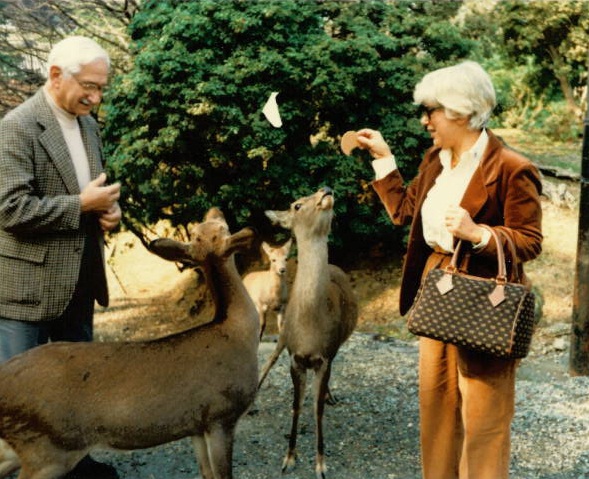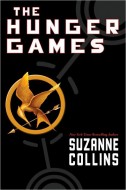 The #3 Most Challenged Book in 2011: The Hunger Games trilogy, by Suzanne Collins. Reasons: anti-ethnic; anti-family; insensitivity; offensive language; occult/satanic; violence. Continue reading
The #3 Most Challenged Book in 2011: The Hunger Games trilogy, by Suzanne Collins. Reasons: anti-ethnic; anti-family; insensitivity; offensive language; occult/satanic; violence. Continue reading
Author Archives: Melissa Cox Norris
Celebrate the Power of Literature and Read a Banned Book
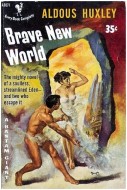 The #7 most challenged book in 2011: Brave New World, by Aldous Huxley. Reasons: insensitivity; nudity; racism; religious viewpoint; sexually explicit. Continue reading
The #7 most challenged book in 2011: Brave New World, by Aldous Huxley. Reasons: insensitivity; nudity; racism; religious viewpoint; sexually explicit. Continue reading
1st Fridays at 4
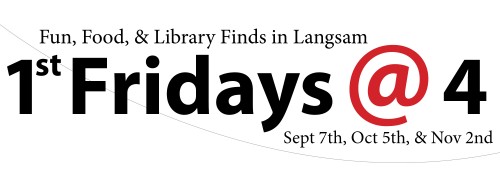 Have you ever thought of auditioning for the TV show Survivor? Continue reading
Have you ever thought of auditioning for the TV show Survivor? Continue reading
UC Libraries Celebrate Information Literacy Awareness Month
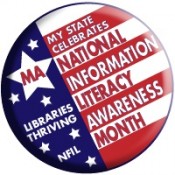 October is Information Literacy Awareness Month
October is Information Literacy Awareness Month
On October 1, 2009, President Barack Obama issued a proclamation establishing October as National Information Literacy Awareness Month. Information literacy, or the ability to find, evaluate, and use information effectively, is key in preparing students for being actively involved in a democratic society and seeking highly skilled jobs. Information literacy skills lay a solid foundation for lifelong learning. Continue reading
Celebrate the Power of Literature and Read a Banned Book
 Banned Books Week is Sept. 30 – Oct. 6
Banned Books Week is Sept. 30 – Oct. 6
Banned Books Week is an annual observance from the American Library Association’s (ALA) Office for Intellectual Freedom (OIF) that celebrates the First Amendment right of the freedom to read. Continue reading
New HSL Classes!
Three new classes have been added to the regular HSL class schedule: Google Tips and Tricks , Citation Management Overview, and Prezi. Come try out one of these new classes as well as any of our other regularly scheduled classes! A full schedule with times and descriptions is available online at http://webcentral.uc.edu/hslclass/.
- Google Tips and Tricks: In this class, students will learn to use Google for more than searching online. The course will cover advanced Google search tips, Google Reader to help manage your online reading, and several other Google tips and tricks.
- Citation Management Overview: Learn about free and for-fee options available at UC and online. This session will introduce students to RefWorks, EndNote, Zotero, and Mendeley.
- Prezi: Looking for a new presentation software? Make your presentations more visually exciting with Prezi, a web-based presentation software.
UC Libraries Receive Grant to Digitize Historic Cincinnati Subway and Street Project Photographs
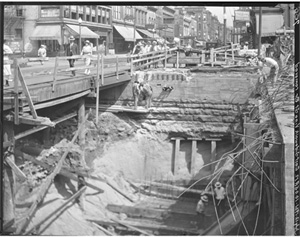 The University of Cincinnati Libraries were awarded a $60,669 Library Services and Technology Act (LSTA) grant from the State Library of Ohio to digitize and make freely available on the Web the photographic collection of Cincinnati’s subway and street changes archive. Continue reading
The University of Cincinnati Libraries were awarded a $60,669 Library Services and Technology Act (LSTA) grant from the State Library of Ohio to digitize and make freely available on the Web the photographic collection of Cincinnati’s subway and street changes archive. Continue reading
The Albert B. Sabin Digitization Project: The Microbe Hunter
By Jeff O’Flynn, Sabin Project Student Assistant
[Sabin Archivist’s Note: This week features the first blog post on the Sabin project from Jeff O’Flynn, one of our new student assistants. Jeff is pursuing a doctoral degree from the University of Cincinnati College-Conservatory of Music. He will be blogging on different Sabin-related topics as we work on the project. Please give Jeff a warm welcome by reading his posts! -SB]
The first assignment I handled when I started at the Sabin Archive nearly a month ago was to inventory a recent acquisition. Mrs. Sabin and her son sent us another large shipment of documents, photographs, awards, videos, and almost everything else imaginable. Sifting through these items served as my introduction to Albert B. Sabin’s life and legacy. This donation offered insight mainly into his later years and his posthumous honors with nearly all the items dating from 1970 forward. I learned many interesting things as I sorted through hundreds of fascinating items and I will share some of the most memorable items on this blog. First, I want to highlight an essay Dr. Sabin wrote in 1992 as an introduction to Paul de Kruif’s “Microbe Hunters” which influenced his life greatly. Continue reading
HSL Lunch & Learn: Instruction to Fit Your Schedule
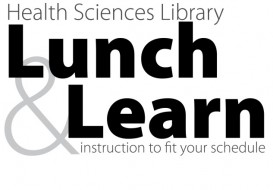 The Donald C. Harrison Health Sciences Library invites you to join us for our Fall Lunch & Learn instruction series, Tuesdays, October 2 – 30, 12:10-12:50pm, in the Health Sciences Library Classroom (MSB G005G). Continue reading
The Donald C. Harrison Health Sciences Library invites you to join us for our Fall Lunch & Learn instruction series, Tuesdays, October 2 – 30, 12:10-12:50pm, in the Health Sciences Library Classroom (MSB G005G). Continue reading
The Albert B. Sabin Digitization Project: The Personal Side of Dr. Sabin
By Richard Jason Sookoor, Sabin Project Student Assistant
I’ve been working with the Sabin Archives for a little over three months now and am still somewhat overwhelmed by the amount of material Dr. Sabin accumulated during his long career. So when we recently received a shipment of even more materials from Mrs. Sabin and her son, I was rather surprised. Not simply because there were items we didn’t have – because judging by where we store our archival collections, it seems we have everything Dr. Sabin ever touched – but because of the amount we received. Looking over the boxes, it’s hard to imagine how one person could amass this amount of materials. Dr. Sabin kept himself quite busy, it seems. Continue reading

